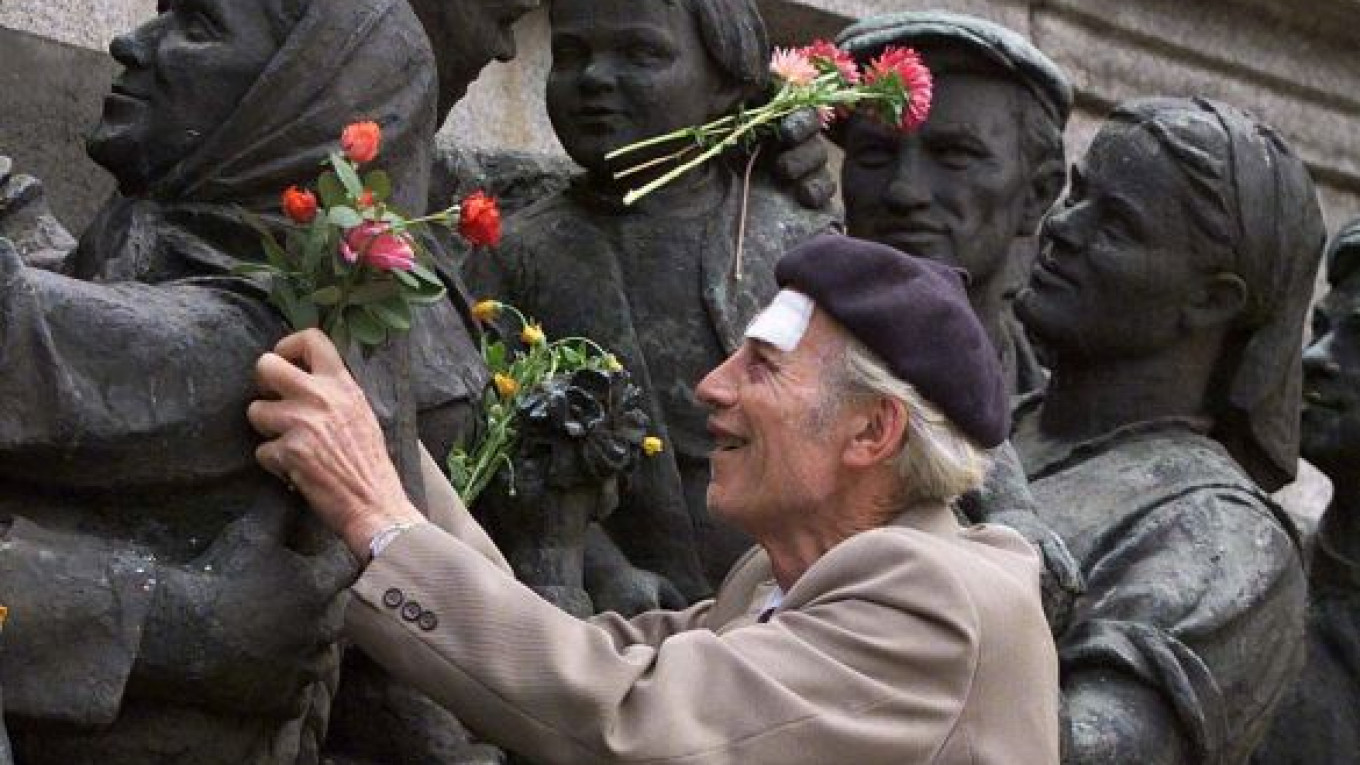BELENE, Bulgaria — In the dense forests of the idyllic Danube island of Persin, home to the endangered sea eagle and the pygmy cormorant, lie the ghastly remains of a communist-era death camp.
Hundreds of “enemies of the regime” perished from beatings, malnutrition and exhaustion between 1949 and 1959 in the Belene concentration camp, where corpses were fed to pigs.
Twenty years after the fall of communism, Belene is largely forgotten — only a small marble plaque tells its horrific story. And nostalgia for the past is growing in the small Balkan country and across the former Soviet bloc.
Capitalism’s failure to lift living standards, impose the rule of law and tame flourishing corruption and nepotism has given way to fond memories of the times when the jobless rate was zero, food was cheap and social safety was high.
“[The bad] things have been forgotten,” said Rumen Petkov, 42, a former guard now clerk at the only prison still functioning on Persin Island.
“The nostalgia is palpable, particularly among the elderly,” he said, in front of the crumbling buildings of another old jail opened on the site after the camp was shut in 1959.
Some young people in the impoverished town of Belene, linked to the island with a pontoon bridge, also reminisce. “We lived better in the past,” said Anelia Beeva, 31. “We went on vacation to the coast and the mountains, there were plenty of clothes, shoes, food. And now the biggest chunk of our incomes is spent on food. People with university degrees are unemployed and many go abroad.”
Across former communist Eastern Europe, disenchantment with democracy is widespread, and pollsters say mistrust of the elites who made people citizens of the European Union is staggering.
A September regional poll by the U.S. Pew research center showed that support for democracy and capitalism has seen the biggest fall in Ukraine, Bulgaria, Lithuania and Hungary.
The poll showed that 30 percent of Ukrainians approved of the change to democracy in 2009, down from 72 percent in 1991. In Bulgaria and Lithuania, the slide was to just over half the population from nearer three-quarters in 1991.
The global economic crisis, which has wounded the region and put an end to six or seven years of growth, is now challenging the remedy of neoliberal capitalism prescribed by the West.
In Hungary, one of the countries worst hit by economic downturn, 70 percent of those who were already adults in 1989 say they were disappointed with the results of the regime change, an October survey by pollster Szonda Ipsos showed.
People in the former Yugoslav countries, scarred by the ethnic wars from the 1990s and still outside the EU, are nostalgic for the socialist era of Josip Broz Tito when, unlike now, they traveled across Europe without a visa.
“Everything was better then. There was no street crime, jobs were safe and salaries were enough for decent living,” said Belgrade pensioner Koviljka Markovic, 70. “Today I can hardly survive with my pension of 250 euros,” or $370 a month.
In Bulgaria, the 33-year rule of late dictator Todor Zhivkov begins to seem like a golden era to some in comparison with the raging corruption and crime that followed his demise.
Over 60 percent say they lived better in the past, even though shopping lines were routine, social connections were the only way to obtain more valuable goods, jeans and Coca-Cola were off-limits and it took up to 10 years of waiting to buy a car.
“For part of the Bulgarians [social] security turned out to be more precious than freedom,” wrote historians Andrei Pantev and Bozhidar Gavrilov in a book on the 100 most influential people in the Balkan country’s history.
Nearly three years after joining the EU, Bulgaria’s average monthly salary of about 300 euros and pension of about 80 euros remain the lowest in the club. Incomes in the more affluent Poland and the Czech Republic, which joined the bloc in 2004, are also still a fraction of those in Western Europe.
After two decades of patchy, painful reforms, the majority of people refuse to make more sacrifices, as would be needed to complete a revamp of the economy and the judiciary. Demoralization and heightened popularity for political parties promising “a firm hand” are other consequences.
Not without reason.
Prime Minister Vladimir Putin has described the Soviet collapse as the “the greatest geopolitical catastrophe of the century.”
Kremlin critics have accused the authorities of a creeping rehabilitation of the Soviet Union to justify their clampdowns on the media and opposition parties.
“There is an idealization of the Soviet past,” said Nikita Petrov, a historian with the Memorial human rights group. “It’s a conscious policy. They are trying to show the Soviet authorities looking decent and attractive to today’s generation.”
A Message from The Moscow Times:
Dear readers,
We are facing unprecedented challenges. Russia's Prosecutor General's Office has designated The Moscow Times as an "undesirable" organization, criminalizing our work and putting our staff at risk of prosecution. This follows our earlier unjust labeling as a "foreign agent."
These actions are direct attempts to silence independent journalism in Russia. The authorities claim our work "discredits the decisions of the Russian leadership." We see things differently: we strive to provide accurate, unbiased reporting on Russia.
We, the journalists of The Moscow Times, refuse to be silenced. But to continue our work, we need your help.
Your support, no matter how small, makes a world of difference. If you can, please support us monthly starting from just $2. It's quick to set up, and every contribution makes a significant impact.
By supporting The Moscow Times, you're defending open, independent journalism in the face of repression. Thank you for standing with us.
Remind me later.


